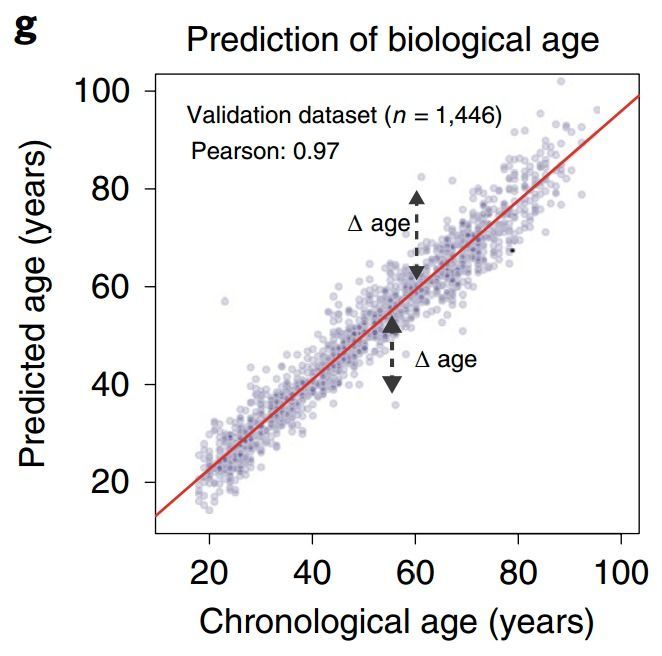Page 7222
Dec 24, 2019
How the ‘big 5’ bolstered their AI through acquisitions in 2019
Posted by Derick Lee in category: robotics/AI
Throughout 2019, tech companies have ramped up their efforts to secure the best AI talent and technology. Here, we take a look back at some of this activity, with a focus on the “big 5”: Facebook, Amazon, Apple, Microsoft, and (Alphabet’s) Google (FAAMG).
All the big tech firms secured AI talent and technology through acquisitions this year, including Facebook, Amazon, Apple, Microsoft, and Google.
Dec 24, 2019
Man who nearly died from blood clot launches preventative device
Posted by Genevieve Klien in category: biotech/medical

Paul Westerman was just 44 when he developed the blood clot that almost killed him after suffering a knee injury while playing tennis.
Eight days after he fell, part of the clot — which had formed in a vein in his calf — travelled to his heart and lungs, with catastrophic results.
Continue reading “Man who nearly died from blood clot launches preventative device” »
Dec 24, 2019
Study finds caffeine helps protect against the damage of a poor diet
Posted by Genevieve Klien in categories: biotech/medical, health
Consuming a diet high in sugar and fat is a known risk factor for a number of health problems, including obesity and type-2 diabetes. A new study from the University of Illinois has found that consuming caffeine from coffee, tea, and other sources may help protect against some of the health consequences often resulting from poor dietary habits. Similar benefits were also associated with consuming synthetic caffeine.
Dec 24, 2019
New Aging Clock based on Proteins in the Blood
Posted by John Davies in categories: biotech/medical, genetics, life extension
Methylation clocks are far and away the most accurate markers of a person’s age, and so are a promising tool for evaluating anti-aging interventions, but they are a bit of a black box. We know from statistics that certain places on chromosomes become steadily methylated ( or demethylated ) with age, but we often don’t know what effect that has on expression of particular genes.
For the first time, a clock has been devised based on proteins in the blood that is comparable in accuracy to the best methylation clocks. This has the advantage of being downstream of epigenetics, so it is less of a black box. What can we learn from the proteins that are increased ( and decreased ) with age?
I’ve written often and enthusiastically about the utility of methylation clocks for evaluation of anti-aging interventions [ blog, blog, blog, journal article ]. This technology offers a way to promptly identify small age-reversal successes (perhaps not in individuals, but averaged over a cohort of ~50 to 100 subjects). Before these tests were available, we had no choice but to wait — usually 10 years or more — for enough experimental subjects to die that we could be sure the intervention we were evaluating affected life expectancy. (This is the plan of the worthy but ridiculously expensive TAME trial promoted by Nir Barzilai.)
Dec 24, 2019
Researchers have placed humans in suspended animation
Posted by Paul Battista in categories: cryonics, life extension

Promising news- very primitive proof of concept for cryonics.
Scientists (and sci-fi fans) have been talking about suspended animation for years. The idea that the functions of the human body can somehow be put on “pause” while life-saving medical procedures are performed (or a person is sent into space, a la Alien) has long seemed untenable — until now. According to New Scientist, doctors have successfully placed humans in suspended animation for the first time, in a trial that could have an enormous influence on the future of emergency room surgery.
Continue reading “Researchers have placed humans in suspended animation” »
Dec 24, 2019
Are you — is every person you’ve ever loved, every incredible sight you’ve ever witnessed — part of a hologram?
Posted by Paul Battista in categories: holograms, physics

Some scientists think so.
They argue that all the information in the universe may be stored on some sort of two-dimensional object. In this video, NASA astronomer Michelle Thaller delves into frontier science — an unchartered territory that may require a new level of physics to better understand.
Dec 24, 2019
Science is catching up once again!
Posted by Paul Battista in categories: biotech/medical, science

We are thrilled to announce the findings of the latest research study from Amsterdam Medical Center about the impact of the Wim Hof Method on auto-immune disease. The results are truly impressive. A new milestone has been reached! Shedding light on our human potential. Stay Happy, Strong and Healthy & Make sure to check out the FULL VIDEO and learn all about this latest study at the link below: http://ow.ly/kcSg50xtwfW… #iceman #wimhof #science #research #study #inflammation #immunesystem #breath #cold #mindset #wimhofmethod #stronghappyhealthy
Dec 24, 2019
This Year’s 4 Most Mind-Boggling Stories About the Brain
Posted by Klaus Baldauf in categories: biotech/medical, genetics, neuroscience
2019 was nuts for neuroscience. I said this last year too, but that’s the nature of accelerating technologies: the advances just keep coming.
There’re the theoretical showdowns: a mano a mano battle of where consciousness arises in the brain, wildly creative theories of why our brains are so powerful, and the first complete brain wiring diagram of any species. This year also saw the birth of “hybrid” brain atlases that seek to interrogate brain function from multiple levels—genetic, molecular, and wiring, synthesizing individual maps into multiple comprehensive layers.
Brain organoids also had a wild year. These lab-grown nuggets of brain tissue, not much larger than a lentil, sparked with activity similar to preterm babies, made isolated muscles twitch, and can now be cloned into armies of near-identical “siblings” for experimentation—prompting a new round of debate on whether they’ll ever gain consciousness.
Dec 23, 2019
Chinese Hackers Bypass 2FA in Attacks Spanning 10 Countries
Posted by Quinn Sena in categories: cybercrime/malcode, government
A Chinese hacking group believed to operate on behalf of the Beijing government has learned how to bypass two-factor authentication (2FA) in attacks on government and industry targets, ZDNet reported on Monday.
The group, known as APT20, has reportedly sought to compromise VPN credentials that would grant them heightened levels of access across their victims’ networks, according to ZDNet, citing a new report from Dutch cyber-security firm Fox-IT.














